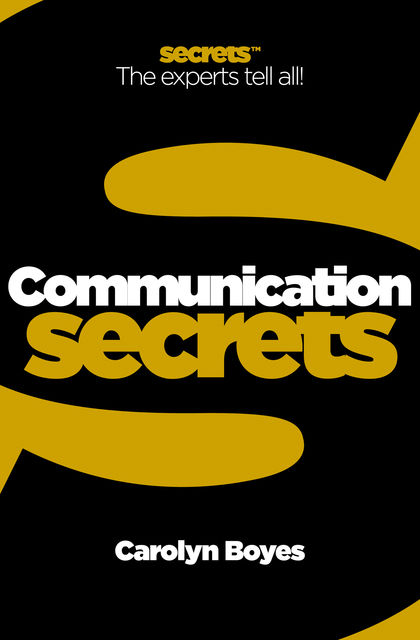Communication (Collins Business Secrets)
- Anastasiia Kostiukцитує5 років томуclient. Most people think they listen, but, if you watch them closely, they are really simply working out what they are going to say as soon as they get an opportunity in the conversation.
Lots of people listen with their ‘mouths’ rather than their ears. They are not really listening at all. They are simply looking for a chance to speak so they can take control of the conversation – this is called selective listening - npanteleevaцитує5 років томуWhat do I want out of this interaction? What would be a win for me?”
“What about the other person or people? What are they likely to want? What would be a win for them?” - npanteleevaцитує5 років томуHere are some of the words that you can use:
new, proven, results, safe, free, best, improved, unique, value, save
one minu - npanteleevaцитує5 років томуWhen you use words like “imagine” and “what would it be like if…”, the listener does exactly what you ask. T
- npanteleevaцитує5 років томуGet them on board. Ask for commitment to action. What are the next steps? Outline the next steps needed to implement the idea, or ask them to suggest a first step.
- npanteleevaцитує5 років томуwonder Here is a simple set of questions to use if the client doesn’t seem certain about buying. Firstly ask: “What would it take to convince you to think about buying this?” Then ask: “If we could find a satisfactory solution to this, would you be willing to buy?” This let’s you know exactly what it will take to get the sale.
- Anna Avdeevaцитує6 років томуEffective questioning combined with active listening form a fundamental set of communication skills for business.
- Anna Avdeevaцитує6 років томуPowerful questions are generally open-ended, thought-provoking or probing. This means they can’t be answered with a simple yes or no answer.
- Anna Avdeevaцитує6 років томуIf you want to improve your communication in any business situation, then become a great questioner.
- Anna Avdeevaцитує6 років томуReal listening is not passive. It takes focus and energy, but the pay off is much improved communication.
fb2epub
Перетягніть файли сюди,
не більш ніж 5 за один раз


